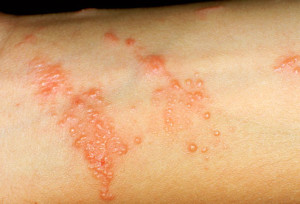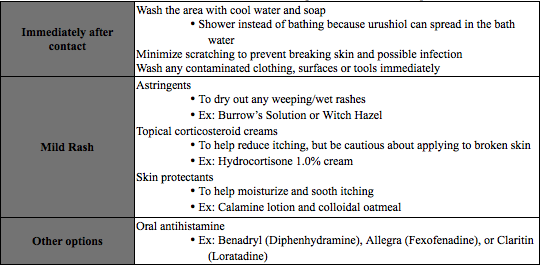Archive for July, 2016
Please Keep Your Pets Safe By Keeping Them Inside.
Someone within the Village of Plain City is killing cats.
Recently, I learned that a family in Plain City had lost their cat. They searched for her thinking she had merely wandered off visiting neighbors. That, however, was not the case and there was no happy reunion. When they found their beloved cat’s body, the cat had been decapitated and the tail had been cut off. Out of their four cats, three had come up missing in the last few months. To protect their final cat, they took him to live with other family members.
It is scary that someone within our quiet village could demonstrate so much violence toward an innocent and unsuspecting animal. The cat that was killed was very friendly and probably approached the person readily.
It is also scary, because people who torture and kill animals usually progress to people at some point.
The Plain City police are currently investigating this crime. If you know anything about this crime or any others involving animals or if something has happened to your own pet (cat or dog–we do not think this person only kills and tortures cats, but wild animals, as well), please contact the Plain City police department: 614-873-4321 (dispatch) or 614-873-2921 (office).
We must all keep our eyes and ears open to prevent this from happening again. Be aware of suspicious activity and report anything that makes you uncomfortable.
In the meantime, please keep your pets inside or when they do go outside, do not leave them unattended. If you have inside/outside cats, please don’t let them wander until this person is caught.
Lovejoy’s Sale Ad for August 1-7.
Take a look at the special Lovejoy’s sale ad for August 1-7.
Stop by the deli the next time you need lunch or dinner. They always have something great and, best of all, you don’t have to cook!
Don’t forget that Lovejoy’s also offers: ATM, Carryout service, film developing, lottery tickets, 2 day movie rentals (Monday to Thursday, movies are $1.99; Friday to Sunday, movies are $2.49), and double manufacturing coupons EVERYDAY.
Wednesdays are Senior Citizen Discount Days!
Like Lovejoy’s on Facebook by going HERE.
For more information on Lovejoy’s IGA, visit their web site HERE.
Lovejoy’s is open 7 days a week from 7 am to 9 pm.
Remember, we hope you will shop locally and support locally owned businesses here in our community!
Click on each of the pages of the ad to enlarge them. When they show up on a separate page, click again to make the pages even bigger. You can also print them out and take them with you when you go shopping!
Poison Ivy and Sumac Rash Prevention and Treatment. By Our July Student Pharmacist, Calvin Chan.
Did you know that almost 85% of people are allergic to poison ivy and it’s two cousins, poison sumac and oak (the last one is not found in Ohio)? I am sure that many of you have either seen or experienced the nasty rashes that are associated with poison ivy. What you may not know is that it is not the actual plants themselves that cause the allergic reaction/rash, but rather a substance produced by them called “urushiol oil.”
The urushiol oil is tenacious–it can stick to your skin, clothes, tools, pets’ fur and spread to pretty much everything it comes into contact with until it is washed off. Even in the winter when the plants have died, the urushiol can still be on them ready to cause unsuspecting visitors some itchy misery. The spread of urushiol is also how people commonly find rashes in places that were never exposed to the plant, because it was unknowingly stuck onto their clothes or other body parts.
So what are the best ways to not only prevent, but also treat poison ivy rashes?
Prevention
The best way to prevent the rashes is to avoid contact in the first place, which can be easy with the following steps:
- Learn the plants’ appearances with simple phrases:
- “Leaves of three, let it be” – A classic phrase that describes how three leaves will often sprout from a single stem of poison ivy.
- “Don’t be a dope and touch the hairy rope” – A useful way to spot the plants in the winter especially since the “hairy”-looking vines will still be present.
- “Berries white, run in fright” – For the telltale white berry-like fruits of poison ivy.
- “Leaves shaped like mittens will itch like the dickens” – The leaves of the plant will often look like they have a thumb coming off of them
- Wear long sleeved shirts and pants when hiking or exploring areas with possible poison ivy.
- If you believe you have touched the plants by accident, wash any areas immediately to prevent the urushiol from spreading further.
- Remove the plants by pulling them up by the root, using an herbicide or boiling hot water.
- DO NOT BURN the plants due to the risk of breathing in the urushiol.
- Handle the plants using VINYL GLOVES, because urushiol can penetrate other materials.
Treatment
If you have a moderate-to-severe rash that covers more than 20-25% of your body, it is highly recommended to seek medical attention. For mild, small rashes there are several great over-the-counter options:
I hope this has been helpful in allowing you to navigate and work in the outdoors a little more safely this summer. As always, if you ever have any more questions, your local pharmacist at Plain City Druggist will always be willing to help!
Sources:
Heartburn. By Our Student Pharmacist for July, Ping Zhu.
Many people have experienced heartburn some time in their lives and used over-the-counter (OTC) medications to treat their heartburn. There are many choices of medications to treat heartburn and choosing the right medicine can become confusing.
Today, we are going to talk about the management of heartburn.
Symptoms:
- Burning sensation of the esophagus or in the chest, usually occurs after eating or while lying down.
When do I need to see a doctor?
- Frequent heartburn (occurs two or more times per week and lasts for more than three months).
- You still experience symptoms after trying over-the-counter medications for more than two weeks.
- Difficulty or painful swallowing.
- Severe symptoms including vomiting and weight loss.
- Stomach bleeding, black or bloody stools.
Life Style Changes:
Some life style changes can help to prevent heartburn. Try these changes:
- Avoid food that can cause heartburn such as:
- Coffee, alcohol, chocolate, fatty foods, citrus, carbonated drinks, spicy foods
- Weight loss.
- Smoking cessation.
- Raise the head of the bed.
- Eat your last meal at least three hours before bedtime and avoid lying down directly after a meal.
Medications:
If you have minor and infrequent heartburn, antacids are a good choice for you. You can take antacids one hour after meals, as needed. Medications that fall under this category are:
- Amphogel, Basalgel (aluminum salts)
- Can cause constipation.
- Avoid in elderly patients, if you drink a lot of alcohol, or if you had a recent GI hemorrhage.
- Philip’s Milk of Magnesia (magnesium salt)
- Can cause diarrhea.
- Avoid if you have kidney disease.
- Alka-Seltzer, Bromo-Seltzer (sodium bicarbonate)
- Can cause weight gain and water retention.
- Avoid if you have high blood pressure, heart failure, and pregnancy. Caution in elderly.
- Tums (calcium carbonate)
- Most commonly used.
- May cause kidney stones.
If you have mild to moderate heartburn, the following medications can help you. They need to be taken 30-60 minutes before you eat, depending on the medication. They last longer than antacids.
- Tagament HB 200, Acid Reducer 200 (cimetidine)
- Zantac (ranitidine)
- Pepcid (famotidine)
If you have frequent heartburn or heartburn that cannot be controlled on the above medications, you can use the following medications:
- Prilosec (omeprazole)
- Prevacid (lansoprozole)
- Zegerid (omeprazole with sodium bicarbonate)
- Nexium (esomeprazole)
Things to remember with these medications:
- Take them one hour before you eat.
- They can also be used to prevent heartburn.
- Make sure you follow up with your doctor if your heartburn is severe or frequent.
- Caution in elderly populations.
- Do not use these products for more than 14 days without talking to your doctor.
Other medications:
- Pepto-Bismol (bismuth subsalicylate)
- Do not use for children <12 years old
- Do not use if you have an aspirin allergy, the flu, or active chicken pox.
These medications can interact with your prescription medications. Make sure you talk to a pharmacist before using these medications. If you have any questions about the medications, side effects, or drug interactions, please let us know! We are here to help!
Mental Illness Awareness. By Our July Student Pharmacist, Corin Craigo.
What is Mental Illness?
Mental illness is a disease that affects someone’s mood, behavior, and how they think. It can wreak havoc on their daily life and also strain their relationships. It is a serious medical condition that can affect anyone at anytime regardless of income, skin color, religious beliefs, or age.
Mental illness is common and occurs in about 1 in 5 adults. Anxiety, depression, schizophrenia, bipolar disorder, post-traumatic stress disorder, and addiction are all examples of different types of mental illness. If you or someone you know is suffering from mental illness, it’s important to know that you are not alone and help is available!
Symptoms:
Symptoms of mental illness depend on the type of illness, severity of the illness, and other factors. Some examples of symptoms include:
- Feeling sad
- Confused thinking/not able to concentrate
- Extreme changes in mood
- Excessive fears, worries, or anxieties
- Excessive anger or violence
- Withdrawal from friends or normal activities
- Lack of pleasure from formerly enjoyable hobbies (anhedonia)
- Unable to cope with daily problems or stress
- Changes in eating habits
- Significant tiredness or problems sleeping
- Drug or alcohol abuse
- Suicidal thinking
***If you or your loved one is thinking of suicide, please call 911 or go to the nearest emergency room.***
Risk Factors:
There are certain factors that can increase your risk of developing a mental illness. Some of these factors include:
- Family history of mental illness
- Stressful situations (ex: financial problems, divorce, death of a loved one)
- Drug and alcohol abuse
- Chronic medical conditions
- Traumatic experiences
- History of abuse or neglect as a child
What can YOU do for a loved one with a mental illness?
Since mental illness is so common, there is a good chance that you may know someone who has one of these conditions. One of the most important things you can do to help your loved one with a mental illness is to be supportive. Understand that mental illness is a real medical condition that is recognizable and treatable. Just because you can’t see the illness, doesn’t mean that it doesn’t exist. Actively and openly listen to your loved one. Talk about what they are going through and don’t downplay or disregard their feelings. Reassure your loved one that you are there for support and let them know they can always come to you for help.
You should also look for any behavioral or mood changes and encourage them to see their doctor when needed and to follow their prescribed treatment regimens. Correctly taking their medications is absolutely crucial in helping them to overcome their mental illness. Medications that treat mental illness can often take weeks until your loved one begins to feel a difference. They can also have unwelcome side effects. Inform the doctor or pharmacist about any intolerable side effects, because they can help your loved one find a different treatment regimen that is better tolerated. Encouraging your loved one to take care of themselves is important. Sufficient sleep, healthy eating, exercise, and keeping a regular schedule are all ways to help manage their mental illness in addition to their medications.
Available Resources:
National Alliance on Mental Illness (NAMI)
- Services Franklin county and the surrounding areas
- All support and educational programming is free of charge
- namifranklincounty.org
Mental Health America
- Services Franklin county and the surrounding areas
- Has information regarding various mental illnesses, doctors available for various mental illness, and organizations located in Franklin county
- mhafc.org
Depression and Bipolar Support Alliance (DBSA)
- Provides general information, treatment resources, and support group information
- dbsalliance.org
National Suicide Prevention Lifeline
- 1-800-273-TALK (8255)
Sources









